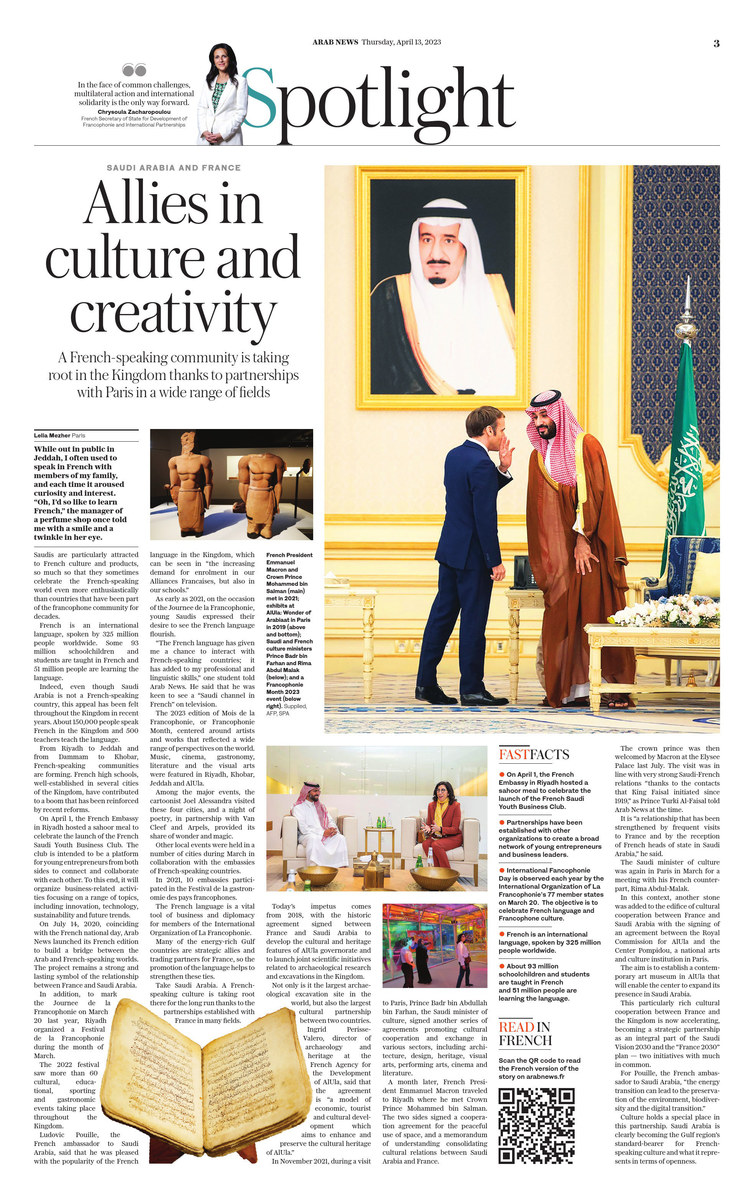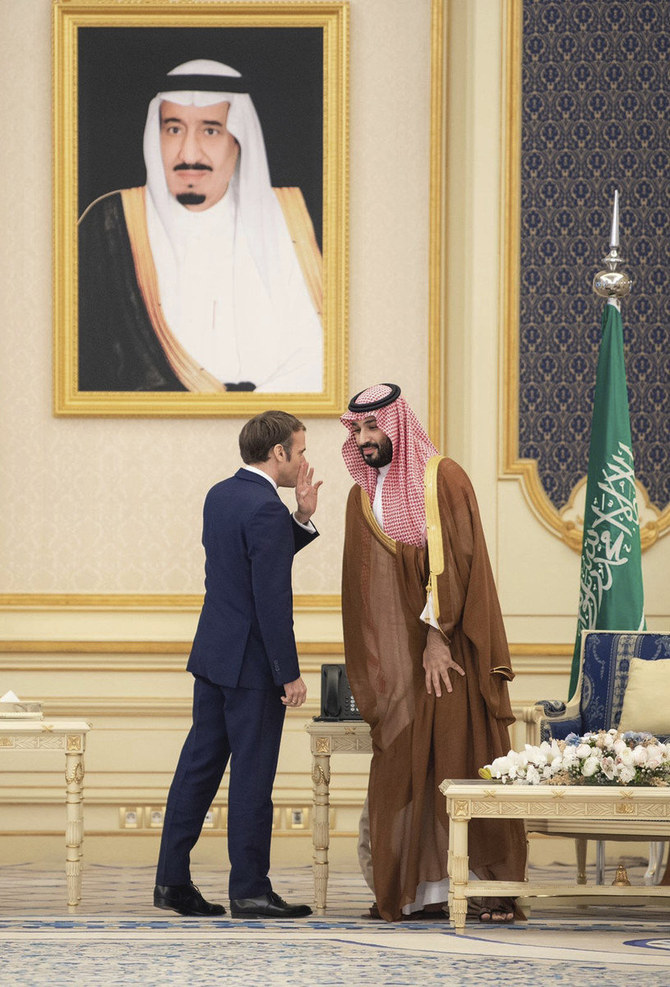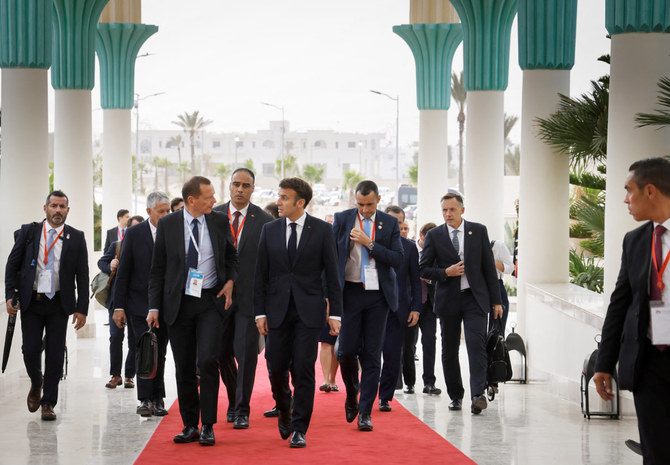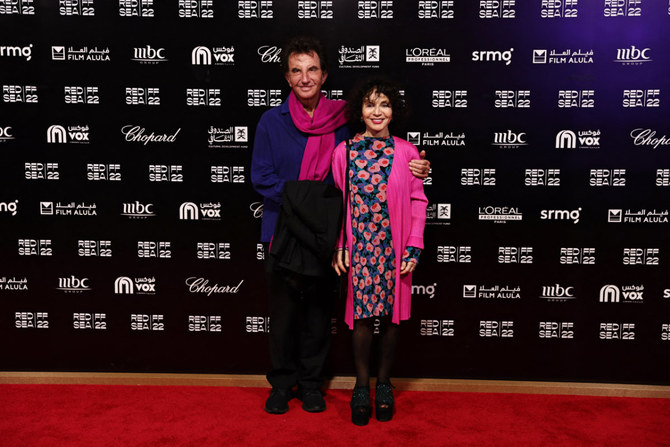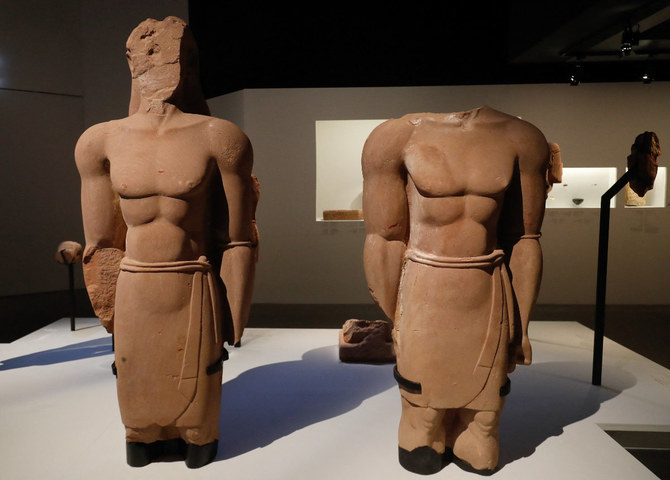PARIS: While out in public in Jeddah, I often used to speak in French with members of my family, and each time it aroused curiosity and interest. “Oh, I’d so like to learn French,” the manager of a perfume shop once told me with a smile and a twinkle in her eye.
Saudis are particularly attracted to French culture and products, so much so that they sometimes celebrate the French-speaking world even more enthusiastically than countries that have been part of the francophone community for decades.
French is an international language, spoken by 325 million people worldwide. Some 93 million schoolchildren and students are taught in French and 51 million people are learning the language.

The French Club of Jeddah hosted last month the first Saudi Francophone Night to showcase Saudi culture. (Supplied)
Indeed, even though Saudi Arabia is not a French-speaking country, this appeal has been felt throughout the Kingdom in recent years. Some 150,000 people speak French in the Kingdom and 500 teachers teach the language.
From Riyadh to Jeddah and from Dammam to Khobar, French-speaking communities are forming. French high schools, well established in several cities of the Kingdom, have contributed to a boom that has been reinforced by recent reforms.
On April 1, the French Embassy in Riyadh hosted a suhoor meal to celebrate the launch of the French Saudi Youth Business Club. The club is intended to be a platform for young entrepreneurs from both sides to connect and collaborate with each other. To this end, it will organize business-related activities focusing on a range of topics, including innovation, technology, sustainability and future trends.
On July 14, 2020, coinciding with the French national day, Arab News launched its French edition to build a bridge between the Arab and French-speaking worlds. The project remains a strong and lasting symbol of the relationship between France and Saudi Arabia. In addition, to mark the Journee de la Francophonie on March 20, Riyadh organized a Festival de la Francophonie over the month of March.
The 2022 festival saw more than 60 cultural, educational, sporting and gastronomic events taking place throughout the Kingdom.
Ludovic Pouille, the French ambassador to Saudi Arabia, said that he was pleased with the popularity of the French language in the Kingdom, which can be seen in “the increasing demand for enrolment in our Alliances Francaises, but also in our schools.”

French Ambassador Ludovic Pouille hosted an evening celebrating the French-Saudi cultural dialogue at the French Embassy in Riyadh in September 2022. (Huda Bashatah/AN)
As early as 2021, on the occasion of the Journee de la Francophonie, young Saudis expressed their desire to see the French language flourish.
“The French language has given me a chance to interact with French-speaking countries; it has added to my professional and linguistic skills,” one student told Arab News. He said that he was keen to see a “Saudi channel in French” on television.
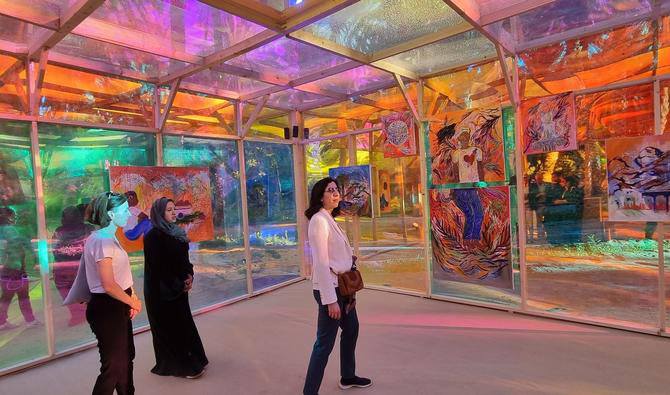
The 2023 edition of the Mois de la Francophonie is centered around artists and works that reflect a wide range of perspectives on the world. French music, cinema, gastronomy, literature and visual arts will be in the spotlight in Riyadh, Alkhobar, Jeddah and AlUla. (Supplied)
The 2023 edition of the Mois de la Francophonie centered around artists and works that reflected a wide range of perspectives on the world. Music, cinema, gastronomy, literature and visual arts were featured in Riyadh, Khobar, Jeddah and AlUla.
FASTFACTS
On April 1, the French Embassy in Riyadh hosted a suhoor meal to celebrate the launch of the French Saudi Youth Business Club.
Partnerships have been established with other organizations to create a broad network of young entrepreneurs and business leaders.
International Francophonie Day is observed within the International Organization of La Francophonie 77 member states every March 20. The objective is to celebrate French language and Francophone culture.
French is an international language, spoken by 325 million people worldwide.
Some 93 million schoolchildren and students are taught in French and 51 million people are learning the language.
Among the major events, the cartoonist Joel Alessandra visited these four cities, and a night of poetry, in partnership with Van Cleef and Arpels, provided its share of wonder and magic.
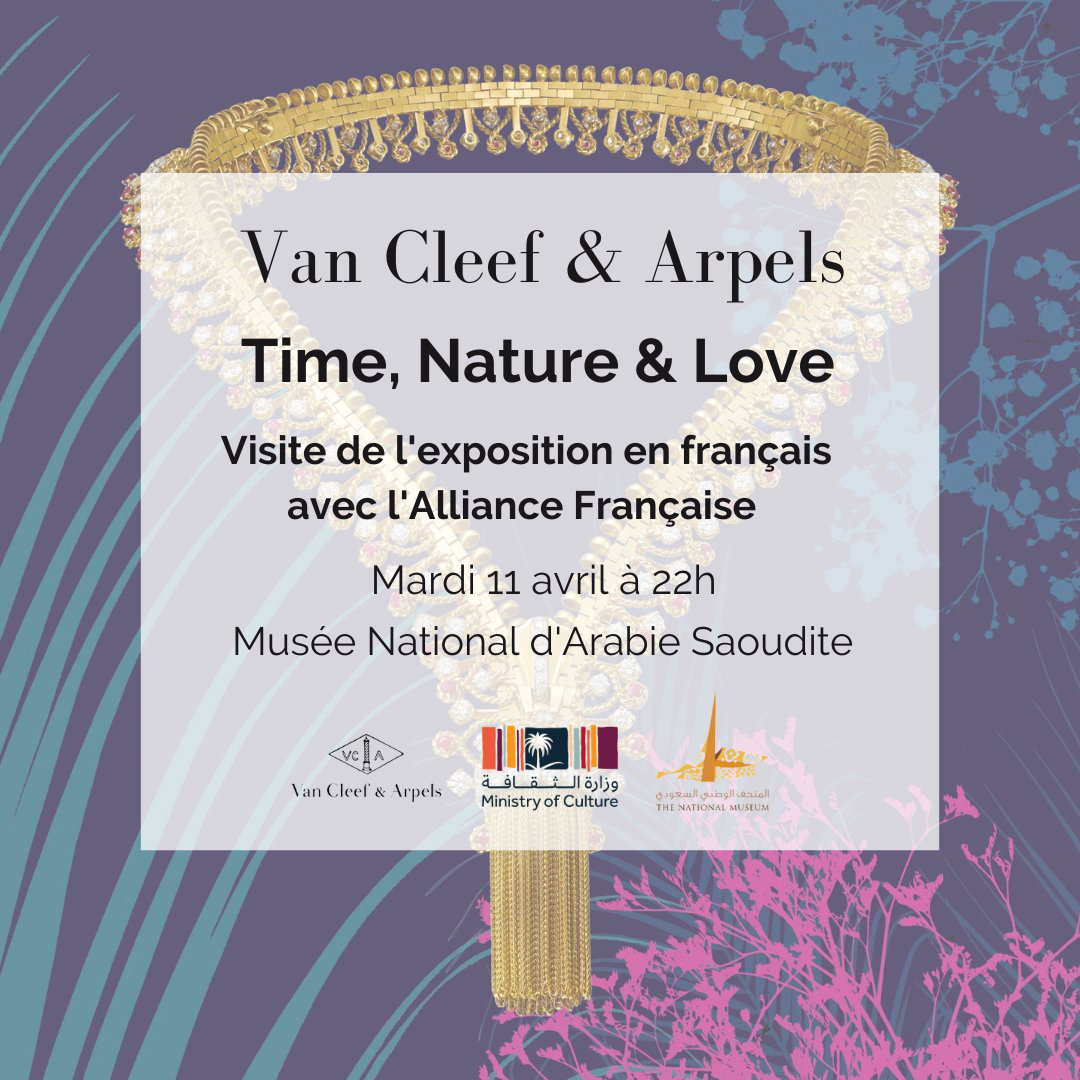
Van Cleef and Arpels, in cooperation with Alliance Française, held an exposition at the National Museum of Saudi Arabia in Riyadh on April 11, 2023. (Twitter: @vancleefarpels)
Other local events were held in a number of cities during March in collaboration with all the embassies of French-speaking countries. In 2021, 10 embassies participated in the Festival de la gastronomie des pays francophones.
The Gulf Cooperation Council member countries are helping to cement the historic ties that bind the Arab world and France. In recent years, the French language has been steadily gaining importance in the UAE and Qatar in particular.
The French government, for its part, been taking steps to promote and encourage the teaching of French in the region. It has provided financial aid to organizations and institutions that are engaged in teaching or promoting French culture and language.
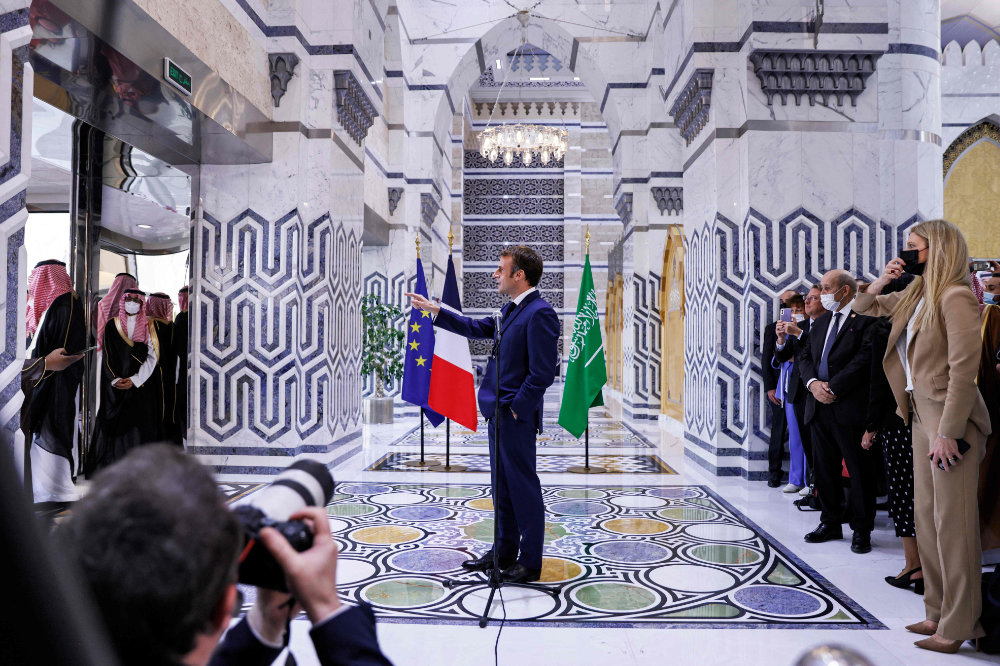
French President Emmanuel Macron traveled to Riyadh in December 2021, where he met Crown Prince Mohammed bin Salman. (Supplied)
There are now numerous language schools across the GCC region offering French lessons. There is also a growing number of private language institutes providing classes for both adults and children, making it easier than ever before to learn French in the region.
The French language is a vital tool of business and diplomacy for members of the International Organization of La Francophonie. Many of the energy-rich Gulf countries are strategic allies and trading partners for France, so the promotion of the language helps to strengthen these ties.
Take Saudi Arabia. A French-speaking culture is taking root there for the long run thanks to the partnerships established with France in many fields.
Today’s impetus comes from 2018, with the historic agreement signed between France and Saudi Arabia to develop the cultural and heritage features of AlUla governorate and to launch joint scientific initiatives related to archaeological research and excavations in the Kingdom.
Not only is it the largest archaeological excavation site in the world, but also the largest cultural partnership between two countries.
Ingrid Perisse-Valero, director of archaeology and heritage at the French Agency for the Development of AlUla, said that the agreement is “a model of economic, tourist and cultural development which aims to enhance and preserve the cultural heritage of AlUla.”
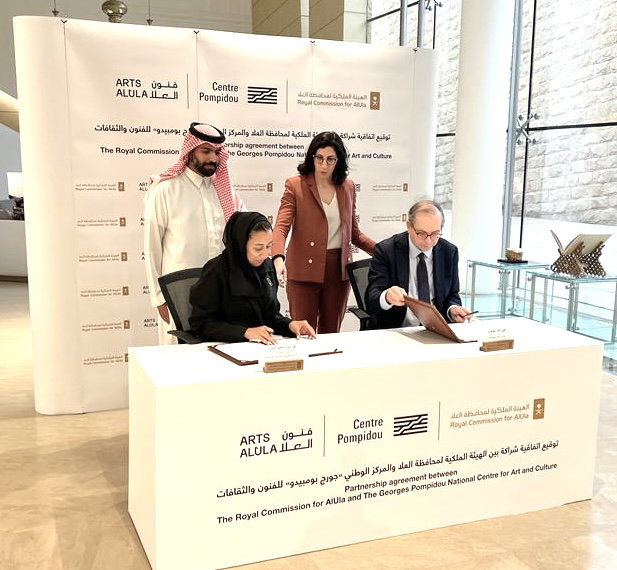
Saudi Culture Minister Prince Badr bin Abdullah bin Farhan and French Minister of Culture Rima Abdul Malak witness the signing of a partnership agreement between the Royal Commission for AlUla Governorate and the CentrePompidou on March 14, 2023. (Twitter: @AF_ALULA)
In November 2021, during a visit to Paris, Prince Badr bin Farhan, the Saudi minister of culture, signed another series of agreements promoting cultural cooperation and exchange in various sectors, including architecture, design, heritage, visual arts, performing arts, cinema and literature.
A month later, French President Emmanuel Macron traveled to Riyadh where he met Crown Prince Mohammed bin Salman. The two sides signed a joint cooperation agreement in the peaceful use of space, and a memorandum of understanding consolidating cultural relations between Saudi Arabia and France.
The crown prince was then welcomed by Macron at the Elysee Palace last July. The visit was in line with very strong Saudi-French relations “thanks to the contacts that King Faisal initiated since 1919,” as Prince Turki Al-Faisal told Arab News at the time.
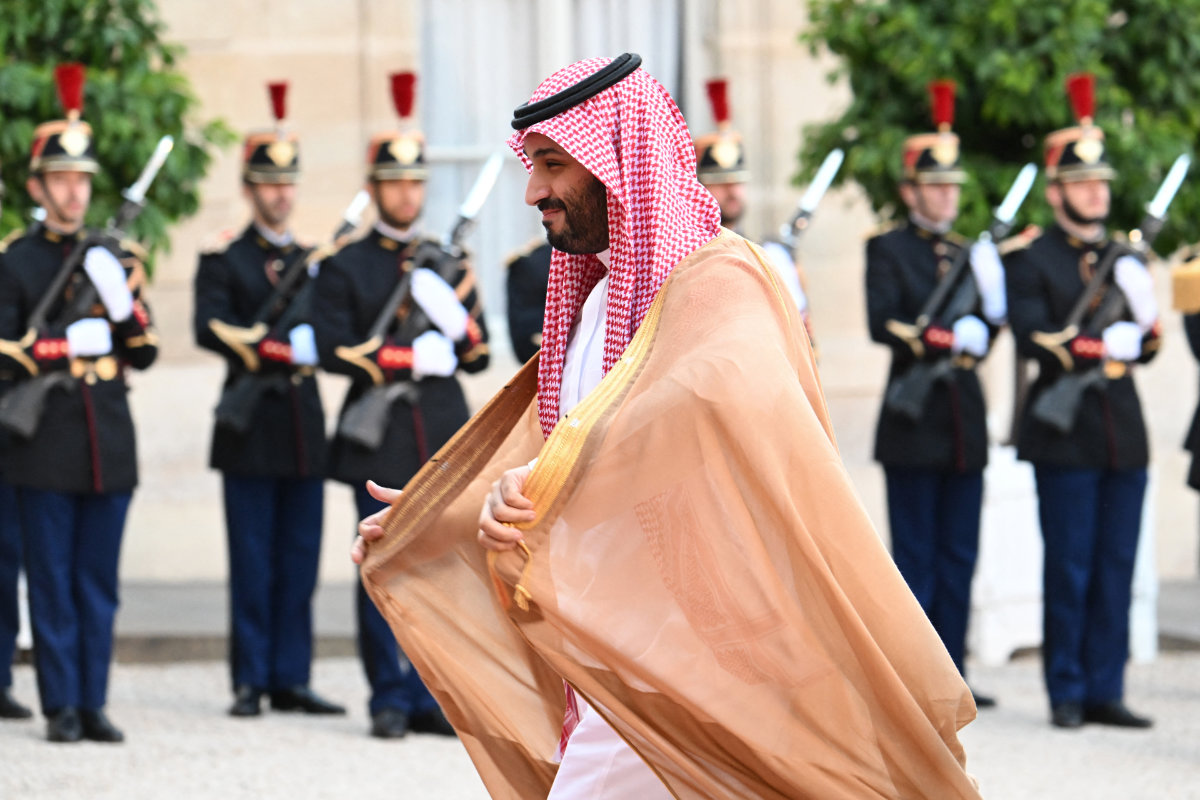
Saudi Crown Prince Mohammed bin Salman arrives at France's presidential Elysee Palace in Paris to meet President Emmanuel Macron on July 28, 2022. (AFP file)
It is “a relationship that has been strengthened by frequent visits to France and by the reception of French heads of state in Saudi Arabia,” he said.
The Saudi minister of culture was again in Paris in March for a meeting with his French counterpart, Rima Abdul-Malak.
In this context, another stone was added to the edifice of cultural cooperation between France and Saudi Arabia with the signing of an agreement between the Royal Commission for AlUla and the Center Pompidou, a national art and culture institution in Paris.
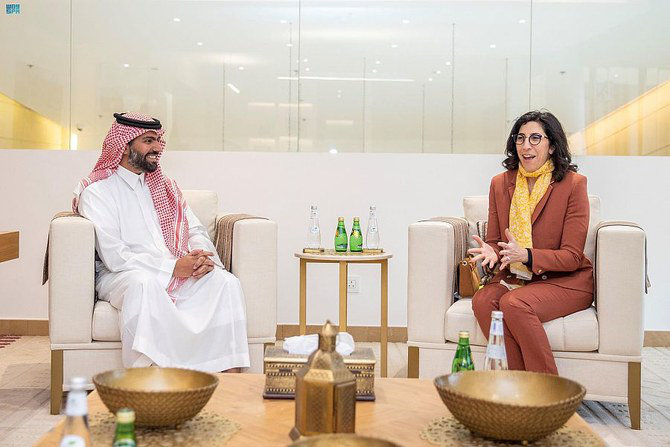
Saudi Culture Minister Prince Badr bin Abdullah bin Farhan and his French counterpart Rima Abdul Malak in Riyadh. (SPA)
The aim is to establish a contemporary art museum in AlUla that will enable the center to expand its presence in Saudi Arabia.
This particularly rich cultural cooperation between France and the Kingdom is now accelerating, becoming a strategic partnership as an integral part of the Saudi Vision 2030 and the “France 2030” plan — two initiatives with much in common.
For Pouille, the French ambassador to Saudi Arabia, “the energy transition can lead to the preservation of the environment, biodiversity and the digital transition.”
Culture holds a special place in this partnership. Saudi Arabia is clearly becoming the Gulf region’s standard-bearer for French-speaking culture and what it represents in terms of openness.
